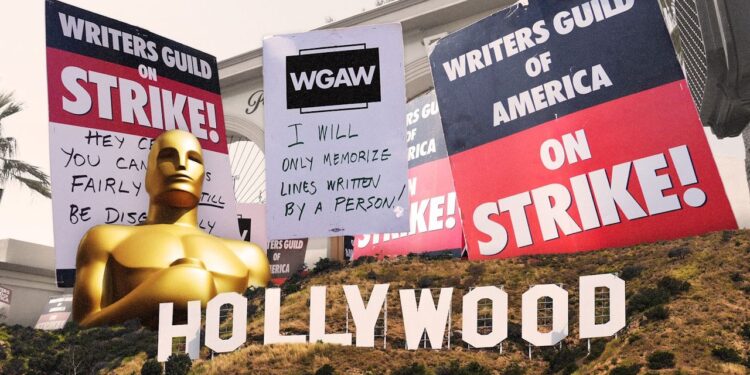Hooray for Hollywood! Except, no-one’s quite saying that anymore as the Screen Actors Guild-American Federation of Television and Radio Artists (SAG-AFTRA to use it’s abbreviated acronym) officially went on strike on July 13th, throwing the industry into a collective panic, with repercussions both immediate and longer term.
In total, around 160,000 television and film performers are now, with some exemptions, unable to work until the strike is called off. This industrial action, combined with the ongoing WGA (Writer’s Guild of America) strike, is the first time both unions have been simultaneously on the picket lines since 1960, when no less than future Commander-in-Chief Ronald Reagan was SAG President.
The media landscape has obviously changed beyond recognition in that time, and so have the reasons for both the SAG-AFTRA and WGA strikes being called. Both unions and studios are at odds primarily over the twin issues of emerging AI technology – performers wanting to ensure their likenesses are not misused or exploited by studios without consent and remuneration – and revenue from streaming services.
The organizing body for, essentially, the studios themselves, the Alliance of Motion Picture and Television Producers (AMPTP) have condemned the strikes as unnecessary and defended their decision to walk away from further negotiations, saying it wasn’t their choice to do but had no other option. In fact, an unnamed studio head perhaps gave away the corporations’ tactical position regarding the twin industrial action when he stated that they are going to wait until writers started losing their homes or thrown out of their apartments before they re-enter negotiations. Clearly no quarter is being given by either side in an increasingly acrimonious stand-off.
The article “‘No-Quit’ Sign At Mcdonald’s Generates Outrage And Analysis In Equal Measure” might also be of interest to you. We recommend giving it a read.
In the wake of both strikes, but especially the SAG-AFTRA’s, many studios are now racing to not just re-organize their release schedules but also to decide if some upcoming major new releases – such as Dune Part Two or The Marvels – may be delayed until 2024, while other titles like Kraven the Hunter have definitely been pushed back nearly a year already owing to Sony’s (who produced the film) desire to have the cast upfront in the pre-release marketing push and are taking no chances.
The last time a major strike effectively shut down Hollywood was the WGA strike that took place between November 2007 and February 2008, subsequently costing Tinseltown over $2bn in lost revenue.
Many people are wondering just how much this twin strike will cost the industry by the time it’s resolved… or, indeed, what will be left of the entertainment industry by the time it is!


